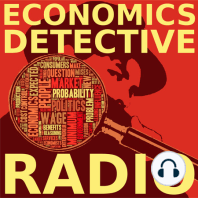41 min listen

Housing, Liquidity, and Closed-Access Cities with Kevin Erdmann
Housing, Liquidity, and Closed-Access Cities with Kevin Erdmann
ratings:
Length:
54 minutes
Released:
Jul 14, 2017
Format:
Podcast episode
Description
My guest today is Kevin Erdmann, he blogs about economics and finance at Idiosyncratic Whisk. Kevin has written a ton about housing, as evidenced by the titles of his blog posts. A recent one is labeled Housing: Part 239. This series is part of a larger book project that Kevin is publically drafting on his blog. We discuss the housing bubble of the 2000s and the post-2008 housing market. I took my first undergraduate economics class in 2008, just as the financial crisis was beginning, so there's never been a time in my economics career when people weren't talking about this. And yet, I still have so much to learn! Kevin makes an interesting distinction between "open-access cities" and "closed-access cities." Closed-access cities are places like San Francisco, New York, and San Jose that have restricted their housing supplies. Open-access cities are places like Houston and Phoenix with more elastic housing supplies. We talk about these factors and how they relate to the housing boom and bust, liquidity, and central bank policy. Kevin points out that supply side restrictions on housing construction are necessary for demand-side factors to cause housing bubbles. That's because in a market with an elastic housing supply, more demand doesn't result in higher prices, it just causes more homes to be built. Related links: Liquidity is a Public Good Credit supply, housing supply, and financial crises
Released:
Jul 14, 2017
Format:
Podcast episode
Titles in the series (100)
Economic Calculation and Education: A key difference between Austrian economics and the neoclassical-mathematical economics developed in the mid-twentieth century by Paul Samuelson and others is the assumption by the latter that people are essentially omniscient. What neoclassical... by Economics Detective Radio